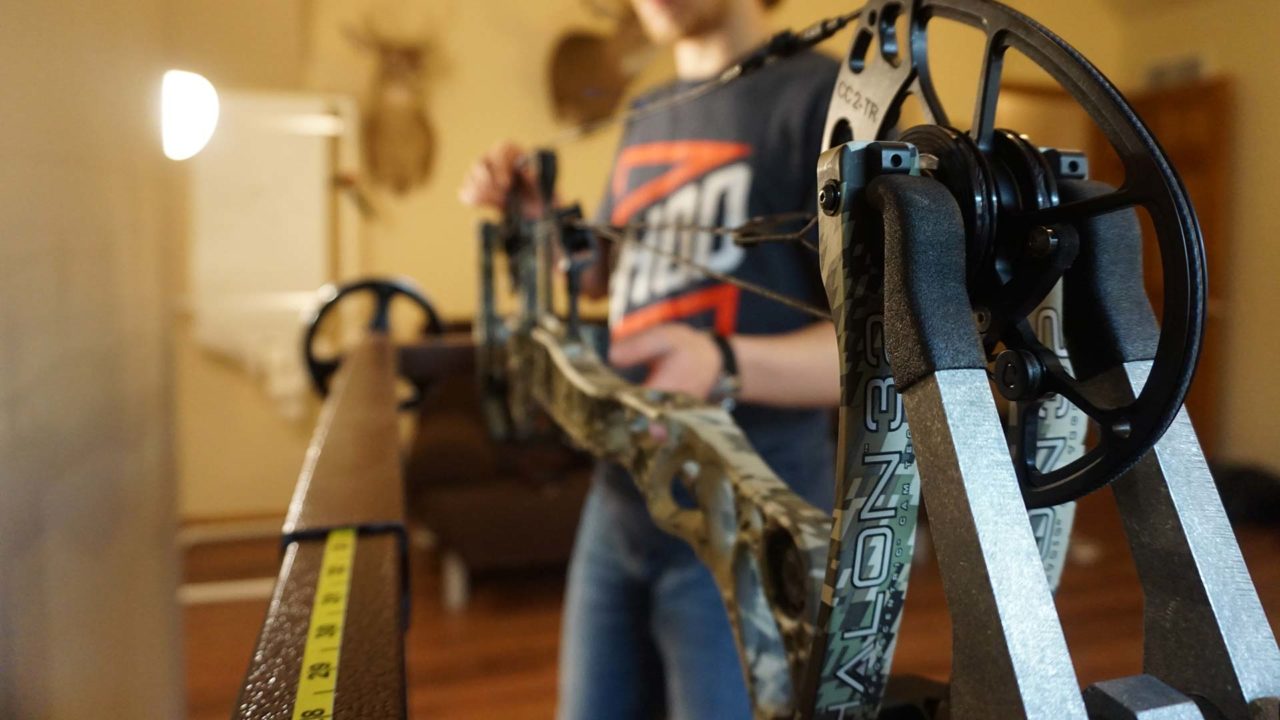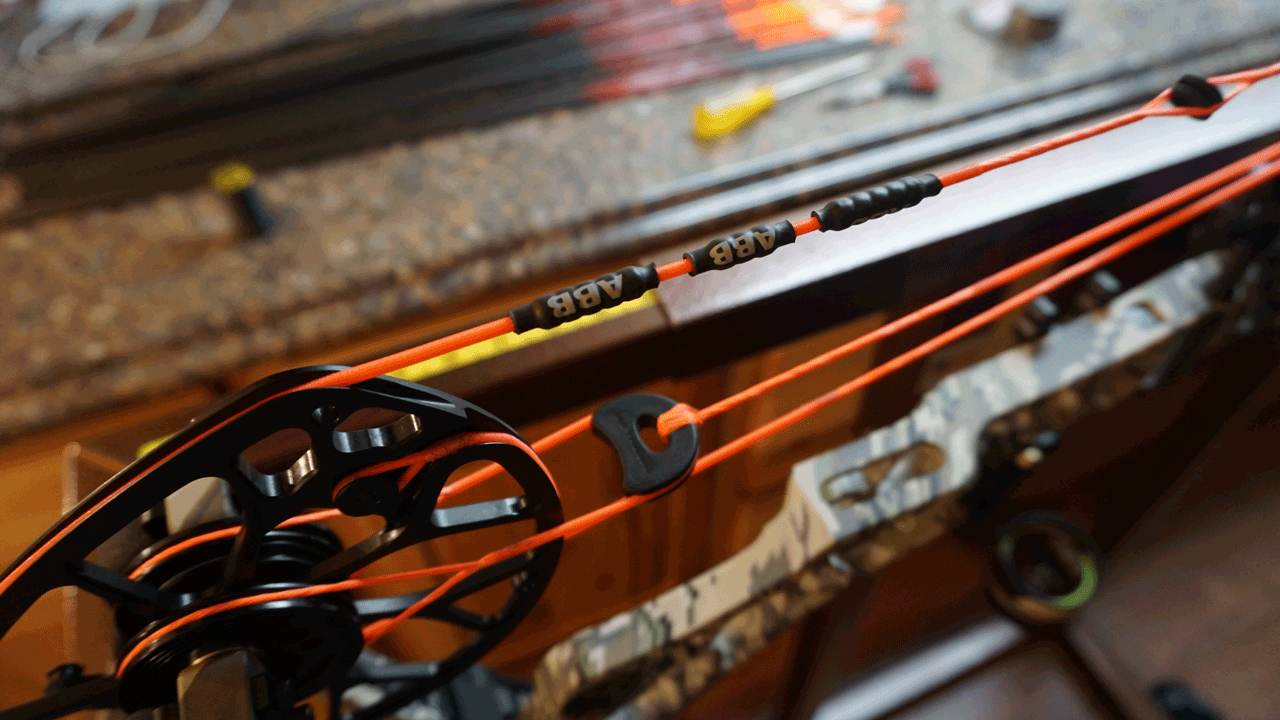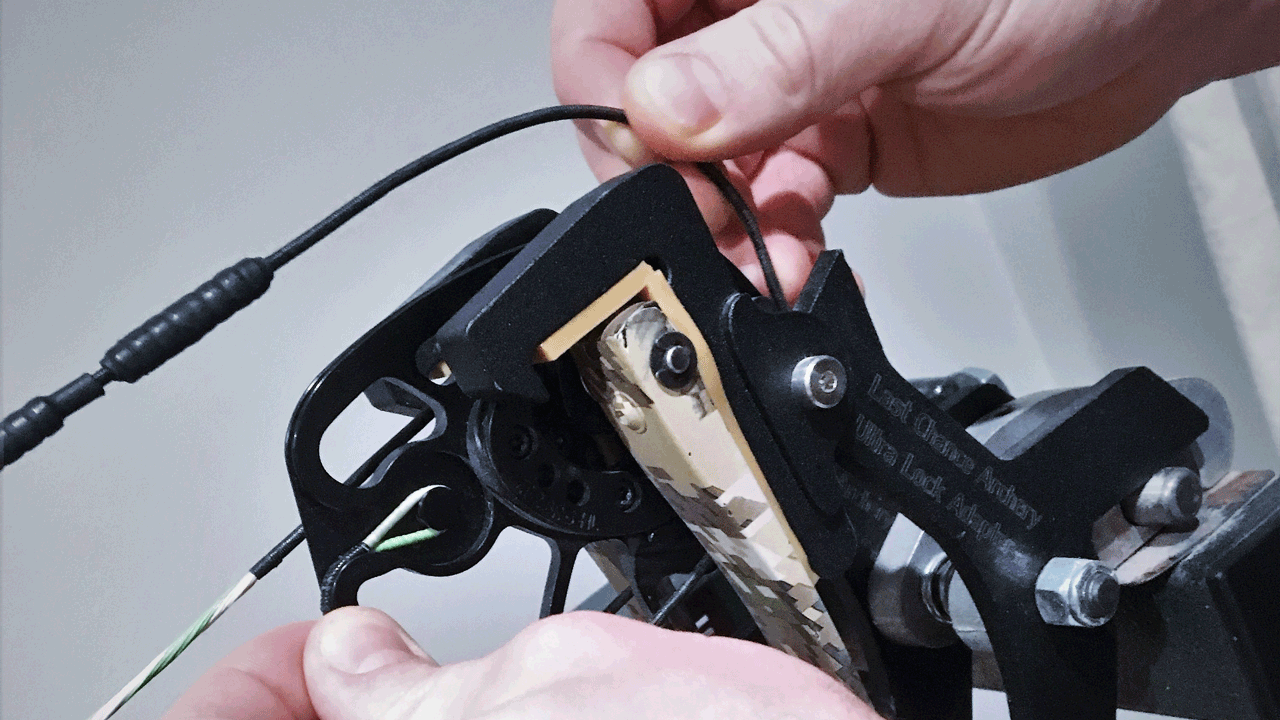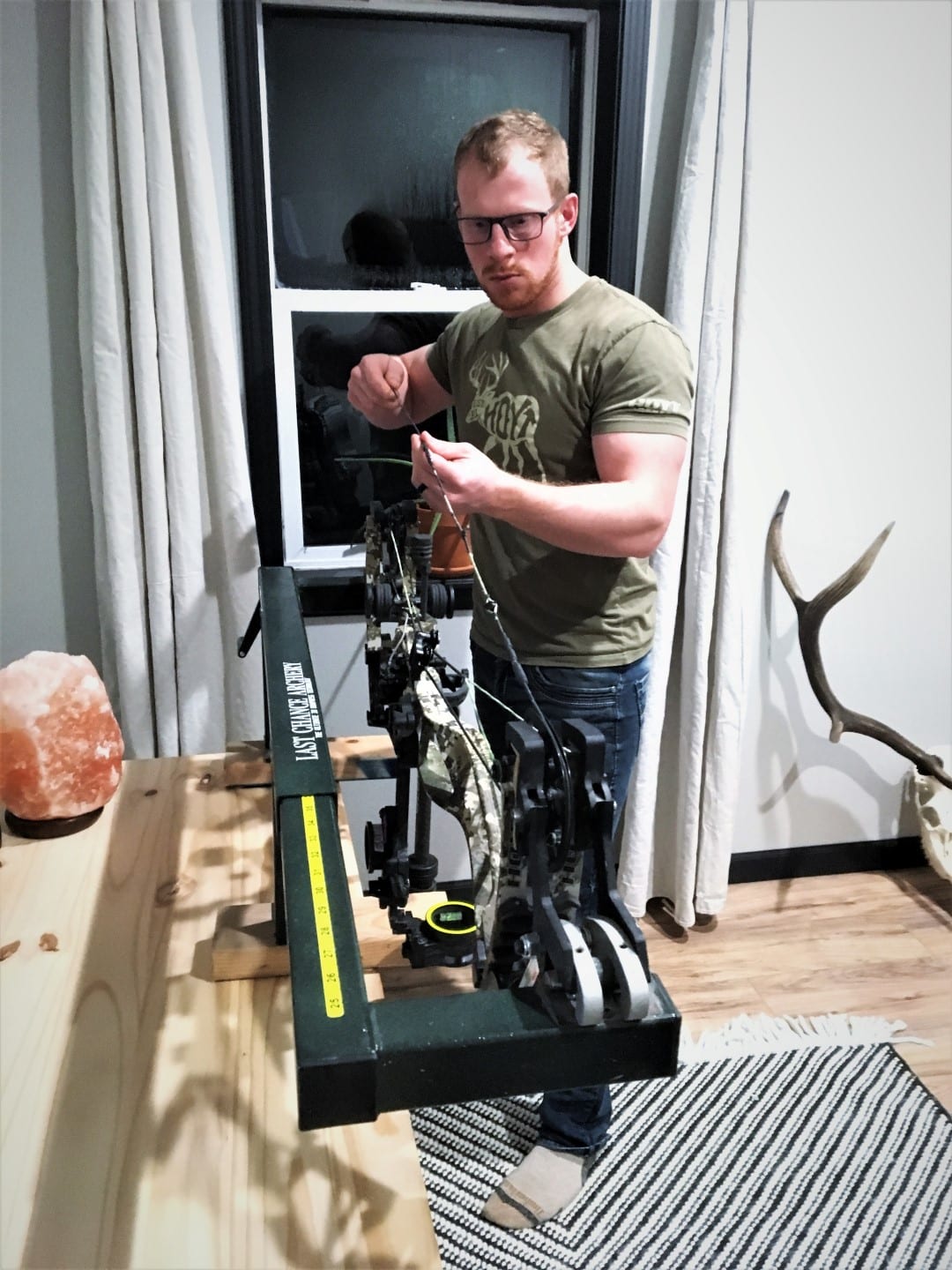Most folks are shooting bows purchased at archery shops and set up by bow technicians. Nothing wrong with that. In fact, it pays to get it done the right way. Plus, set-up fees are generally waived with a new-bow purchase. There’s obvious value in that.
Of course, time and use will gradually change your set up, or your broadhead practice might reveal some tuning is necessary. This will require trips back to the archery shop for simple fixes. Some are so simple that you could handle at home, but most require a bow press. Sounds expensive, right?

A good bow press is a must-have for the DIY bow technician.
Not really. If you consider the price of an affordable, consumer-grade bow press like Last Chance Archery’s EZ Green press, you’ll soon realize that it’s a lifelong investment that will easily pay for itself. The time and money you’ll save — driving back and forth from the shop and paying labor fees — will far outweigh the costs. The convenience is astounding.
To that end, let’s review five reasons to buy your own bow press.
(Note: I realize there are a couple of hacks, and I’ve used them in a pinch. However, they’re unsafe, not recommended and usually void your bow’s warranty. So just do it the right way and get a bow press.)
Straighten a Crooked Peep Sight
Nearly everyone has dealt with a crooked peep sight. I’m quite amazed with how many people tolerate it. Either they shoot with it crooked, or the crank their bowstring one way or the other before drawing back. In any case, shooting consistency will suffer.
To straighten a crooked peep, simply press the bow until the bowstring is slack, then remove the bowstring from the cam peg, rotating until the peep is straight, then replacing the bowstring on the peg. It may take multiple tries, and if your bow is outfitted with a cheap bowstring, you might fight it until blue in the face. In that case, junk it and get a quality pre-stretched string-and-cable set.

String repairs and adjustments are easily tackled when you have your own bow press.
Replace a Broken String Silencer
String silencers don’t last forever. I’ve had a few LimbSaver String Leeches break over the years myself. If a silencer breaks or flies completely out of the bowstring, it could alter performance to a degree.
Good news: It’s a simple fix, but only if you have a couple of spare silencers on hand and a good bow press. Simply press the bow until the bowstring slacks, then separate the strands in half (easy to do with a dual-color bowstring) and put a new silencer in the broken or missing one’s place.
Fix Cam Lean
Fixing cam issues is another great reason to buy your own bow press. When you buy a new bow and shoot it a bunch, things will settle in a bit, even with quality strings and cables. This could lead to a tuning problem known as cam lean. Sounds complicated, but it’s actually very easy to correct if you’re shooting a bow with a split-buss cable and have a bow press.
To identify cam lean, I close my left eye (non-dominant) and study the cam in question. If the bowstring doesn’t align with the cam’s string track, I know my cam is leaning.
Once my bow is pressed, I tighten the split buss on the side opposite of the lean direction. I do a twist or half a twist at a time until the cam aligns perfectly with the string track or until my paper tear is satisfactory.

A bow press will allow you to make changes on your bow without having to run to the archery shop.
Synchronize Cams
Cable stretch or correcting cam lean can desynchronize cam timing. This will result in a dubious back wall in which you might even feel two stops. Not only is it uncomfortable, but it can cause a high or low paper tear, too. In other words, your arrows will not leave the bow properly when cam timing is awry.
It can be difficult for the untrained eye to identify which cam is early and which is late. Rather than draw the bow with my release as I would if shooting, I hook the bowstring on a metal wall anchor that can easily withhold my 70-pound draw weight and then pull down in a slow and controlled manner, watching both cam stops until the bow reaches full draw.
Here’s a look at how to do this in the video below…
Grease Axles

As you de-press the bow, make sure the string and cables are on their cam tracks and hooked properly on their pegs. Always wear eyeglasses in case something goes awry.
After hunting in precipitation, it’s important to dry your bow off as quickly as possible. I’ve used my wife’s hair dryer or placed my bow in our furnace room. Even then, unwanted pops and squeaks can mysteriously arise later when drawing your bow. Not always, but often the problem is with the axles.
Most compound-bow axles can be serviced easily with a bow press. I simply remove tension from the string and cable(s) with a bow press, then I remove the E-clip from one end of both axles. I pull the axle out — watching for shims/spacers between the cams and limbs — while holding the cam in place with my other hand. I lightly coat the axle with a synthetic automobile grease, then put everything back together like I found it.
Buy Your Own Bow Press – Final Precautions
Pressing bows can be dangerous. Be sure to purchase a bow press that is approved for the make/model of bow you’re shooting. Then, always refer to the bow press owner’s manual and follow it closely.
Always double- and triple-check that strings and cables are properly connected to the cams and are in their proper tracks before you de-press your bow. As the strings go back under tension, they can jump off cam tracks or pop off the pegs, and you could get a lickin’ worse than the ones your pa gave you as a kid. I mean it. It’s wise to wear glasses or safety glasses in the event a mishap does occur.
Now that we’ve reviewed several practical at-home uses for a bow press, I suggest that you save your pennies and buy one. And when you do, I bet you’ll wonder why you didn’t do it sooner.
(Note: Tuning is a whole different topic, so if you want to dig deeper and learn how to perform tuning tweaks like some I named above, I suggest using the Internet to find books and online media from reputable folks like Joe Bell, John Dudley, Chuck Adams, Randy Ulmer and other noted bow professionals. I can’t recommend a specific resource since I’m a self-taught bow technician.)

 By
By 



